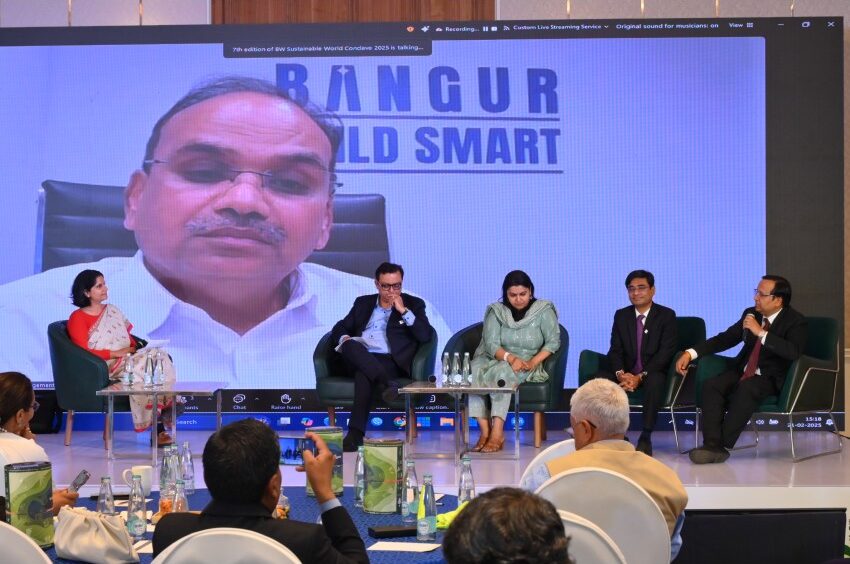Decarbonising The Future: How Industries Are Leading The Energy Transition

Industries and policymakers are actively driving the energy transition through innovation, sustainability commitments, and regulatory frameworks to achieve decarbonisation
Byline: Prabhat Shukla
The global energy sector is at a crucial crossroads, balancing economic growth with sustainability. As industries transition towards cleaner energy solutions, leaders and experts gathered to discuss strategies for achieving decarbonisation.
In 2024, global investments in the energy transition reached a record USD 2.1 trillion, driven by sectors such as electrified transport, renewable energy, and power grids. Notably, solar PV and wind generation together surpassed hydropower generation in 2024, and renewables-based electricity generation is projected to overtake coal-fired power by 2025.
However, geopolitical tensions and economic challenges have introduced uncertainties, with some nations reconsidering their climate commitments due to financial constraints and shifting political priorities. Discussing the energy sector and the road to decarbonisation, industry leaders shed light on sustainability, energy transition, policy impact, and developments that are reshaping the energy landscape.
Corporate Sustainability Initiatives
3M India has embedded sustainability into its corporate DNA. As Smitha Gopalkrishnan, Asia Sustainability Leader (Sustainability and CSR), 3M India, highlighted, the company has been working on sustainability since the 1970s. It has reduced its Scope 1 and 2 emissions by 80 per cent since 2002 and aims to achieve 100 per cent carbon neutrality by 2050. Additionally, its Sustainability Value Commitment ensures that all new products incorporate eco-friendly attributes.
For Shree Cement, decarbonisation is a priority, given the cement industry’s high carbon footprint. M.M. Rathi, Joint President – Power Management, Shree Cement, emphasised that cement production is energy-intensive, contributing significantly to global emissions. However, Shree Cement has outperformed industry standards, achieving an emission rate of 520 grams of CO₂ per kg of cement—well below the Indian industry average of 580 grams. The company has also adopted renewable energy sources, with 75 per cent of its capacity powered by waste heat recovery and alternative fuels.
Reliance Industries is leading efforts in compressed biogas production, claimed Raj Mullick, Senior Executive Vice President, Reliance Industries. The company is focused on creating sustainable fuel alternatives that contribute to India’s clean energy goals.
Innovation And Policy Support
During the discussion, experts agreed that innovation is key to driving the energy transition. Vinay Pratap Singh, Business Unit Director for India and SAARC countries, stressed that industries must adopt new technologies to meet decarbonisation targets. He believes that challenges drive innovation and that companies must continuously evolve their processes to reduce emissions.
Sanjeev Singhal, Central Council Member, ICAI, and Chairman of UNCTAD ISAR’s 39th and 40th Sessions, highlighted the role of policy and regulation. The Institute of Chartered Accountants of India has been a frontrunner in sustainability reporting, having established a Sustainability Reporting Standards Board in 2020. It has also collaborated with SEBI to develop reporting and assurance frameworks.
While moderating the seventh edition of the BW Sustainable World Conclave, Nidhi Sarin, Director, Global Energy Alliance for People and Planet, said, “We are at the crossroads of development and much-needed energy transition. The initiatives are being taken by the industry, and not only on paper but the industry is walking the talk in terms of how it can be done.”
As industries work towards decarbonisation, collaboration between businesses, policymakers, and communities will be crucial. Whether through renewable energy, efficient manufacturing, or sustainable supply chains, the experts agreed that a collective effort is needed to create a lasting environmental impact. With science-based targets, corporate commitments, and regulatory frameworks in place, the journey towards a cleaner, more sustainable energy future is well underway.






































































































































































































































































































































































































































































































































































































































































































































































































































































































































































































































































































































































































